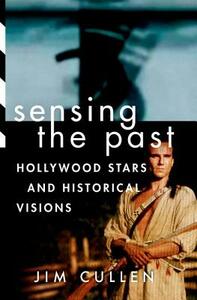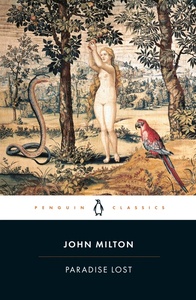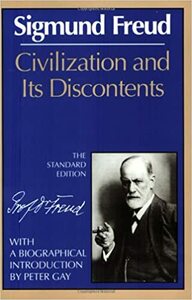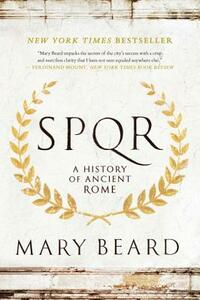Take a photo of a barcode or cover
blindmanbaldwin's Reviews (69)
Summary of the development of contrasting political thought in the United States of America from the beginning through the present moment expressed via a lens of civic religion. Gorski focuses on those who came (white) or were brought in chains (Black) while mostly ignoring those who were already here — though this is an accurate representation of political thought.
Part history, part forecast. Gorski argues that all political thought in this country can be split between individualism and community obligation, and that we have strayed far too close to the individual. We have lost the civic tradition and in doing so we lost ourselves.
Part history, part forecast. Gorski argues that all political thought in this country can be split between individualism and community obligation, and that we have strayed far too close to the individual. We have lost the civic tradition and in doing so we lost ourselves.
Events overtaking decisions. In "Gambling with Armageddon", Sherwin shows in hour-by-hour detail the development of the Cuban Missile Crisis. Sherwin uses primary documents (notes, recordings) to put us into the room and into Kennedy's (among others) head to unlock their decision making and how the situation almost got away from them due to passion and fear. We see everyone around Kennedy pushing for an early and decisive (and mutually fatal) military action, except for Ambassador to the United Nations — and Kennedy political rival — Adlai Stevenson push for diplomacy and thought. Of all the big names highlighted here, Stevenson is the one who was right from the start. Stevenson is also the one who never got the credit.
Yet Sherwin builds his main argument through two stories of lesser known names: Vasily Arkhipov and William Bassett. Two officers, one from the Soviet Union and one from the United States of America, each received orders to fire nuclear weapons. Each officer refusing — opting for patience and further confirmation before they ended the world. Two individuals whose hesistance saved everyone.
Easy to read something about the inherent commitment to life in the human spirit in these stories (I have!), but Sherwin uses them in context of the famous names to conclude on the inevitability of nuclear disaster. We constructed these weapons that can end the world. It just takes one bad individual in one stop along the line to end it for everyone. Birth of the bomb, as Christopher Nolan shows in "Oppenheimer" (an adaptation of a book Sherwin co-wrote), guarantees humanity's death.
Yet Sherwin builds his main argument through two stories of lesser known names: Vasily Arkhipov and William Bassett. Two officers, one from the Soviet Union and one from the United States of America, each received orders to fire nuclear weapons. Each officer refusing — opting for patience and further confirmation before they ended the world. Two individuals whose hesistance saved everyone.
Easy to read something about the inherent commitment to life in the human spirit in these stories (I have!), but Sherwin uses them in context of the famous names to conclude on the inevitability of nuclear disaster. We constructed these weapons that can end the world. It just takes one bad individual in one stop along the line to end it for everyone. Birth of the bomb, as Christopher Nolan shows in "Oppenheimer" (an adaptation of a book Sherwin co-wrote), guarantees humanity's death.
Glad I picked this one up. I want to learn more about Black history in this country, and this book has a lot of important knowledge on the intersection between race and gender in the Civil Rights Movement. Many ethnic conflicts or supremacist movements around the globe use sexual violence to enforce hierarchy, and this country is no different. The stories in this book are heartbreaking but they are the stories of all of us in this country, and we all have an obligation to break the dark forces and create a world where the vision of equality comes into reality.
There are a couple interesting ideas here — echoes in Eastwood's career or looking at New York City as a frontier — but a lot of the arguments here are half-baked. Despite this, I admire the attempt of creating "actor as auteur" and paralleling them to figures in United States's history. Eastwood as Jefferson and Hanks as Lincoln is great.
What impresses upon me the most in all the span and magnitude of "Paradise Lost" is the ending moments of Adam being "cursed" with foresight. He learns everything that humanity will live with because of the choice to leave Paradise, all of the good and all of the bad. He develops for a brief moment something approaching the omniscience of the divine. All of the horrors inside of him —
"The World was all before them, where to choose
Their place of rest, and Providence their guide:
They hand in hand with wandering steps and slow,
Through Eden took their solitaire way."
I have so many thoughts on this myth from Genesis that go beyond the confines of this post, but I appreciate how "Paradise Lost" expands upon it while remaining true to the psychological notion of it. Paradise is not a place to be forever for if you are in paradise you are in ignorance. You are not alive in paradise. Humanity is "created" to leave the womb, to experience. Satan wants a dominion over humanity that he will not find for humanity bows to curiosity above all, the same curiosity that has driven humanity from the beginning to answer "Who am I?" with "Who created us?". Self-awareness means awareness of impermanence which means answering the question of what came before, what came long before, what came first.
"The World was all before them, where to choose
Their place of rest, and Providence their guide:
They hand in hand with wandering steps and slow,
Through Eden took their solitaire way."
I have so many thoughts on this myth from Genesis that go beyond the confines of this post, but I appreciate how "Paradise Lost" expands upon it while remaining true to the psychological notion of it. Paradise is not a place to be forever for if you are in paradise you are in ignorance. You are not alive in paradise. Humanity is "created" to leave the womb, to experience. Satan wants a dominion over humanity that he will not find for humanity bows to curiosity above all, the same curiosity that has driven humanity from the beginning to answer "Who am I?" with "Who created us?". Self-awareness means awareness of impermanence which means answering the question of what came before, what came long before, what came first.
A good summary of Wesley's thoughts and practices, and how they linger throughout the current United Methodist Church. Not critical — though does give some mention to the failings of the church and the man — but not designed to be critical, rather to be a text to use in a church context.
Desire for personal pleasure and a need for union. These are the two forces Freud explores in "Civilization and Its Discontents". Freud presents civilization as a repression of human pleasure to facilitate its growth (sexuality regulated to encourage reproduction). He's not necessarily wrong here, but while Freud looks at this as a neutral or a negative, I look at this as a positive. This likely comes down to differing cultural upbringings.
Interesting, for as much as its conclusions on religion (tool for social organization to create the necessary repression for civilization) are correct, the book uses Christianity as its dominant example. This makes sense given Europe, but it is a limitation of the text.
Interesting, for as much as its conclusions on religion (tool for social organization to create the necessary repression for civilization) are correct, the book uses Christianity as its dominant example. This makes sense given Europe, but it is a limitation of the text.
As someone with no prior background or reading in Roman history, I appreciated how "SPQR" had a straightforward and accessible tone. The book provides a little information on a lot of topics that can inspire future readings in this subject, while still giving detailed enough in some areas (particularly the institutions of the Republic and imperial transition).
Varied literature review on topics relating to the histories of indigenous peoples in North America (present day United States, Canada, and some discussion of Mexico). A good springboard for future research.
Accessible book on the history and beauty of the development of particle physics









